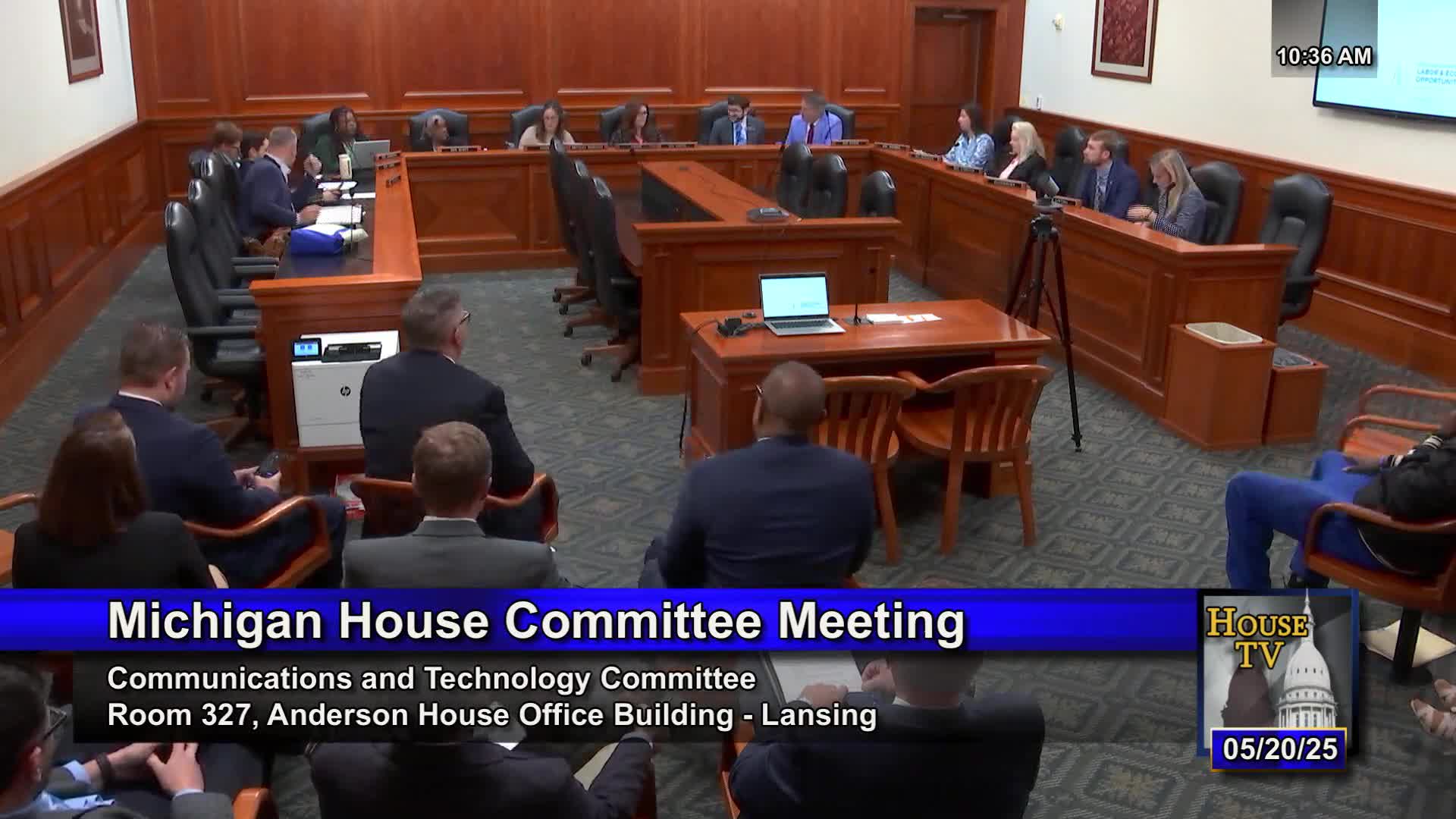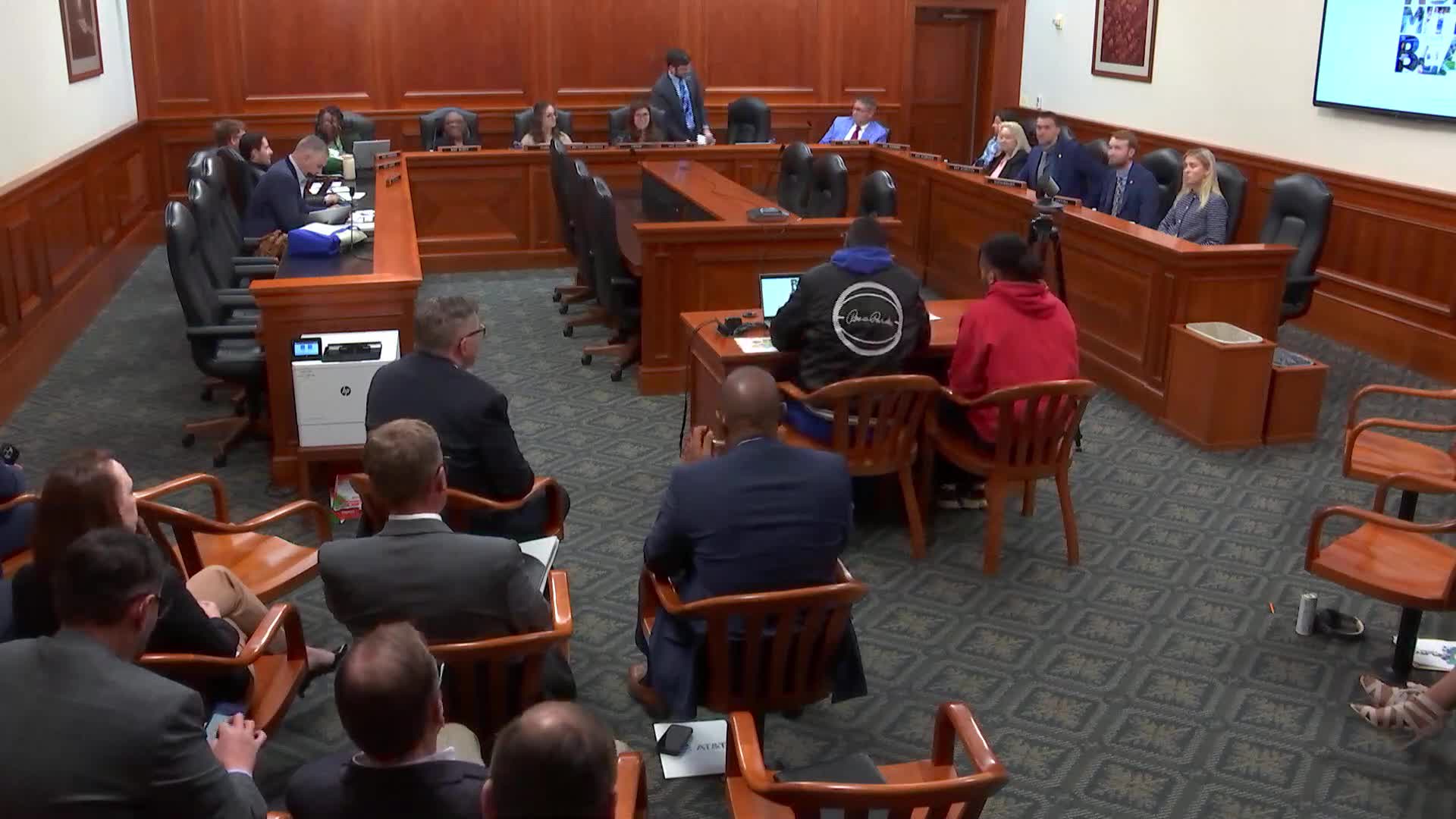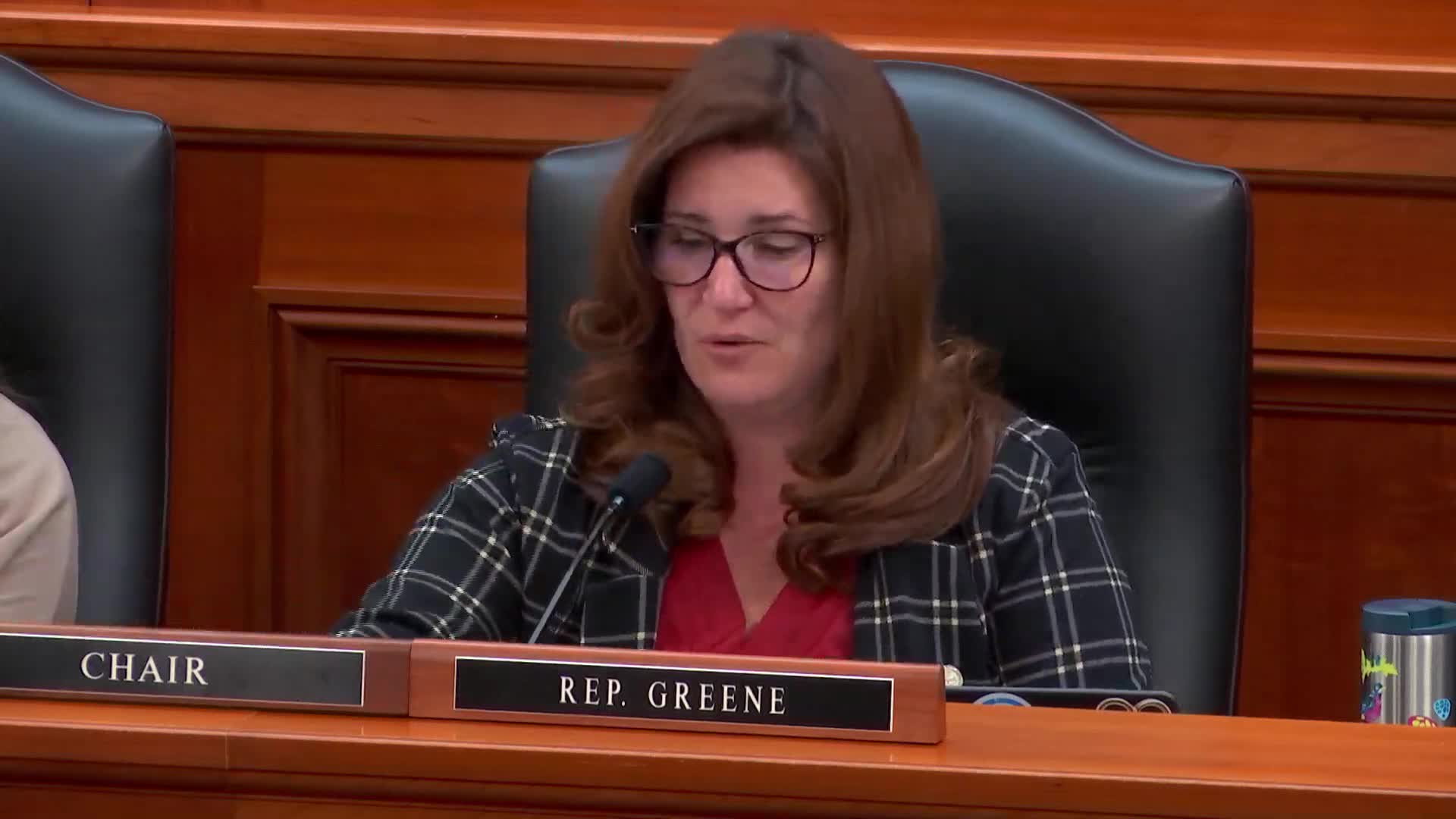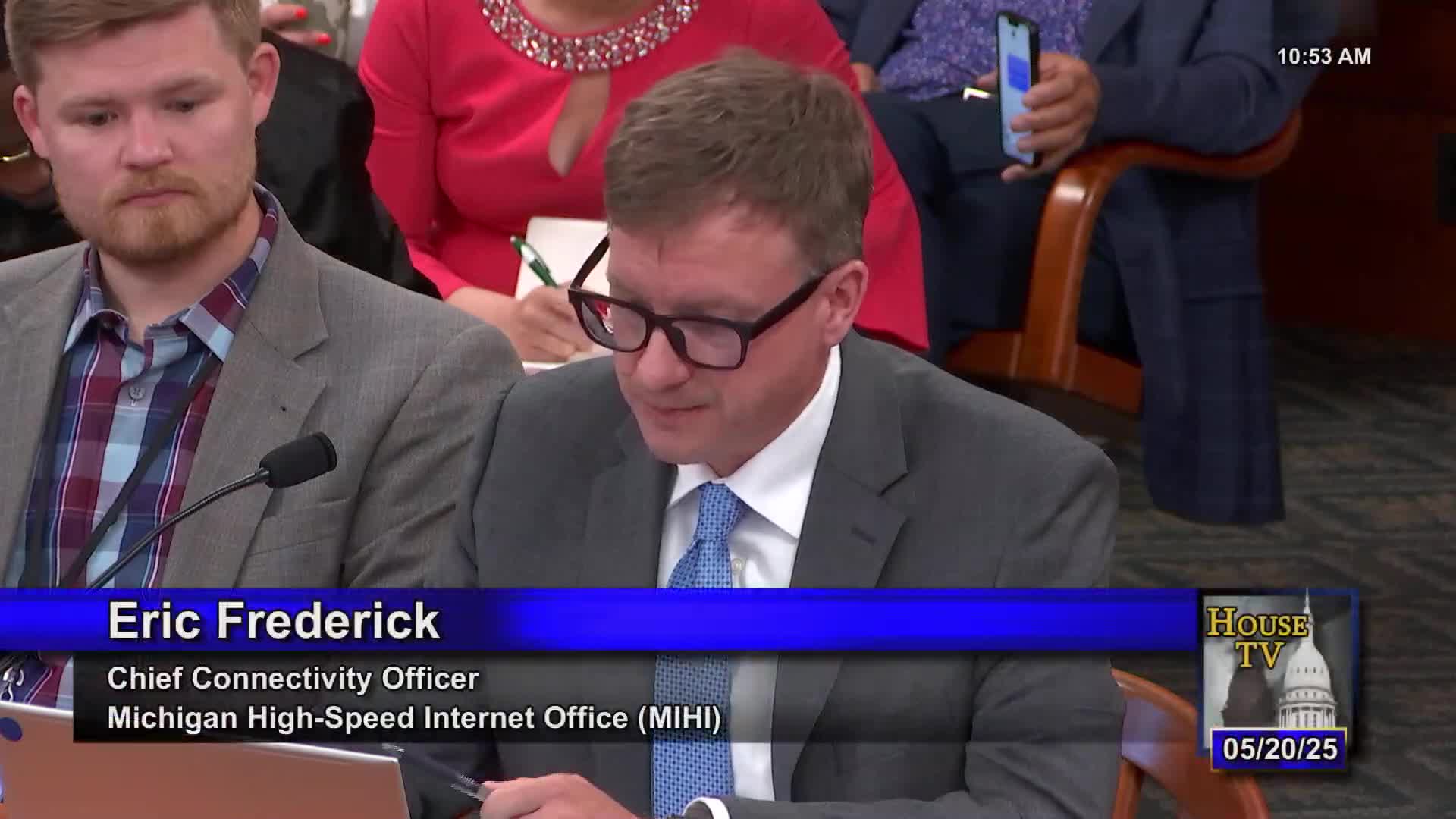Article not found
This article is no longer available. But don't worry—we've gathered other articles that discuss the same topic.

Committee adopts minutes of May 13 without objection

Committee hears overview of state crypto policy and local entrepreneur pitches esports token project

AT&T and FirstNet officials brief committee on coverage, deployables and recent investments in Michigan

